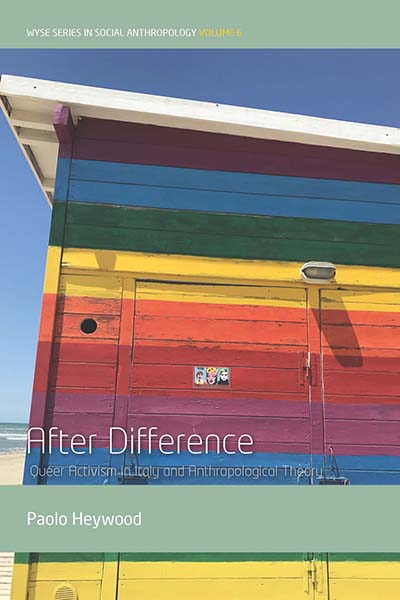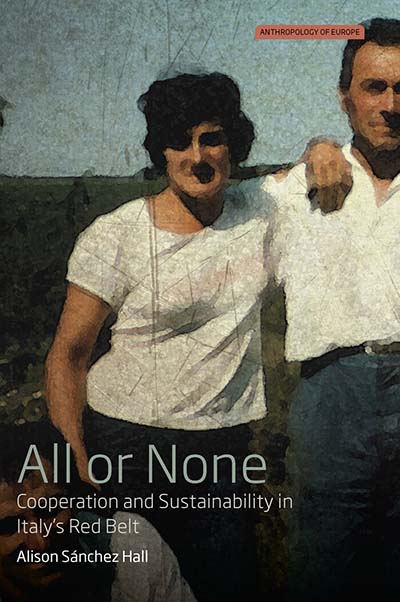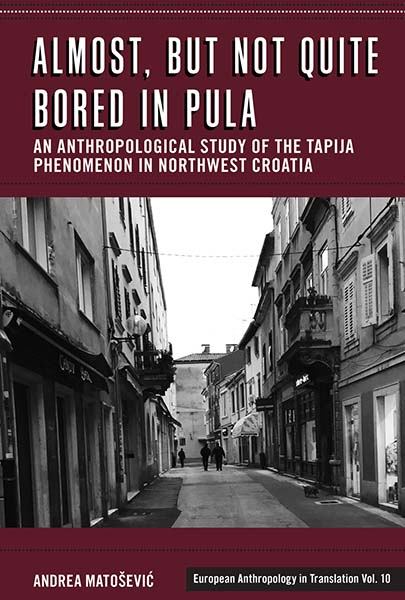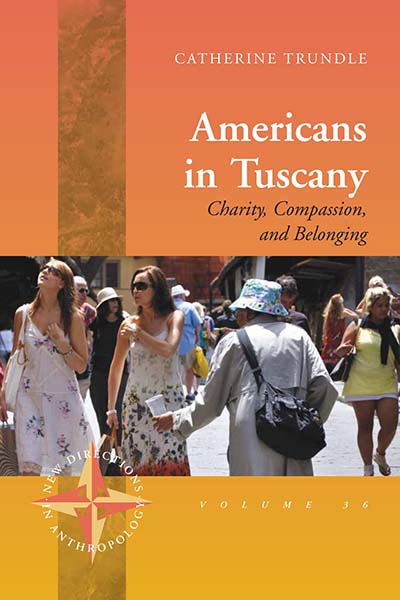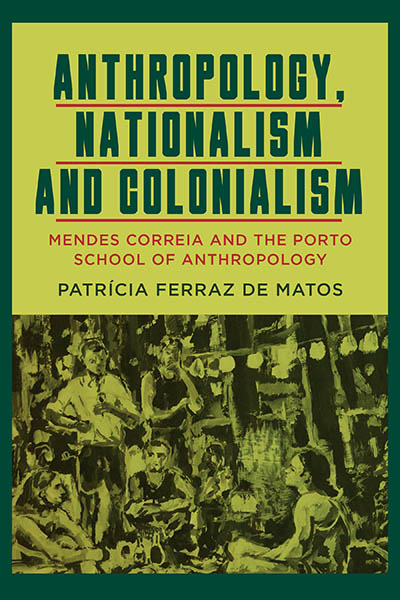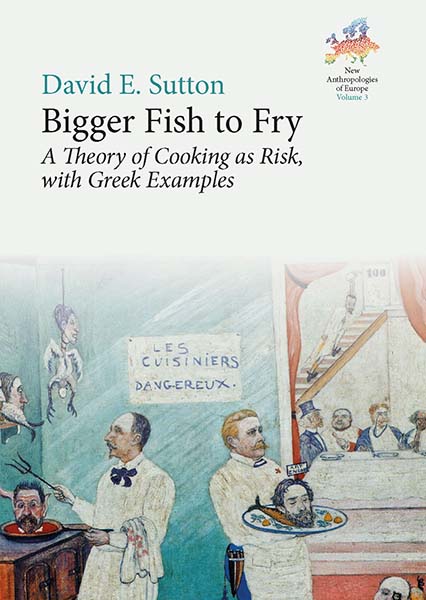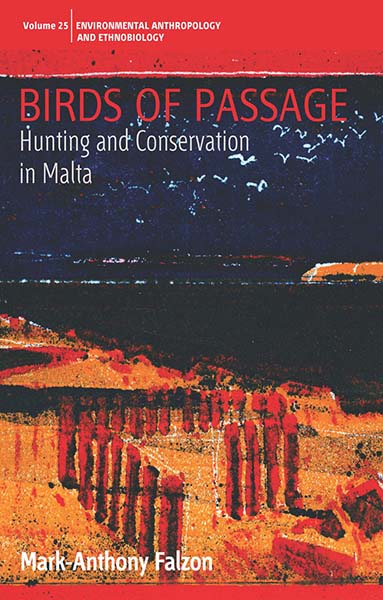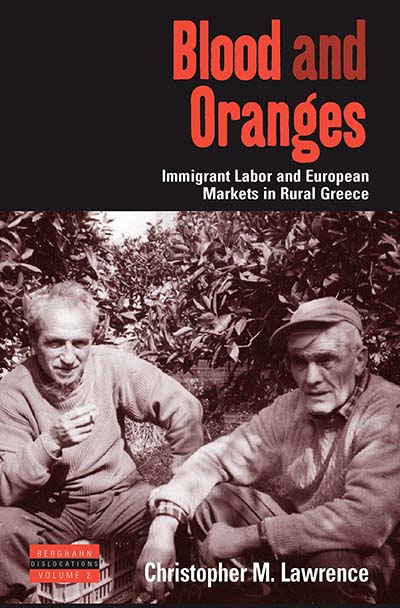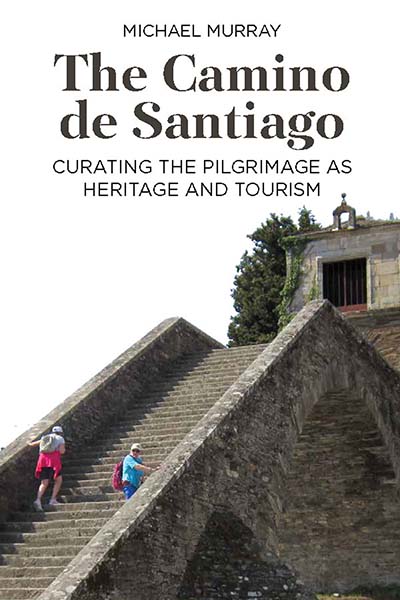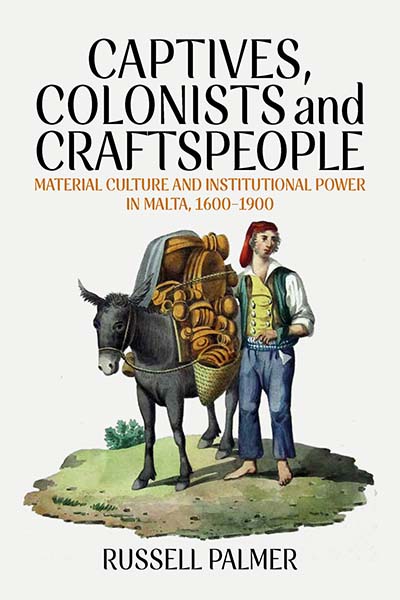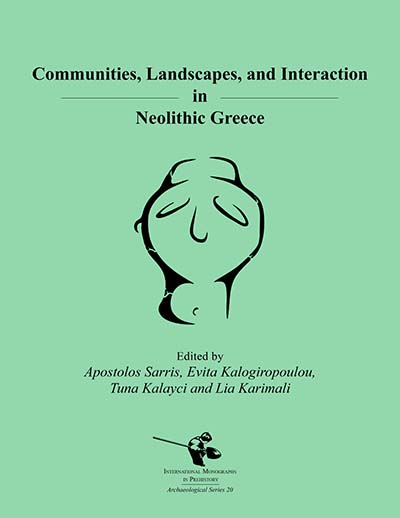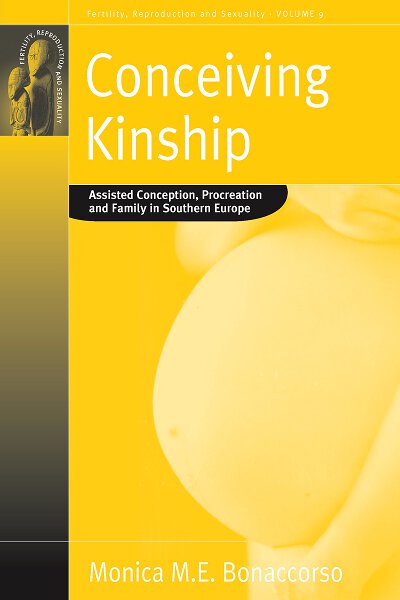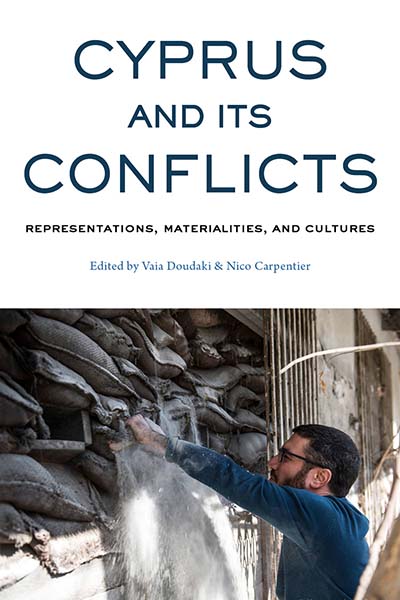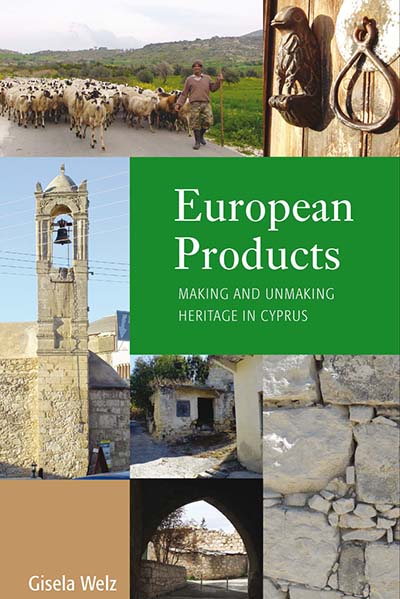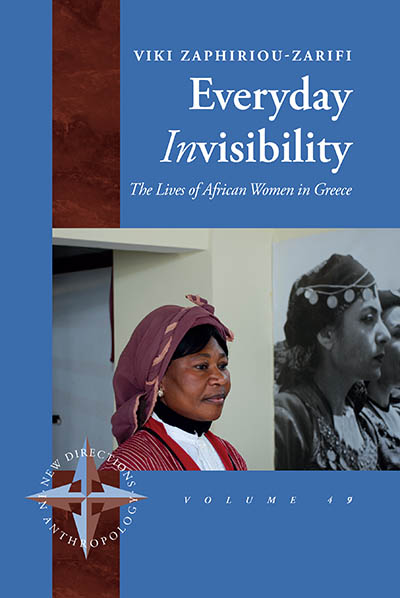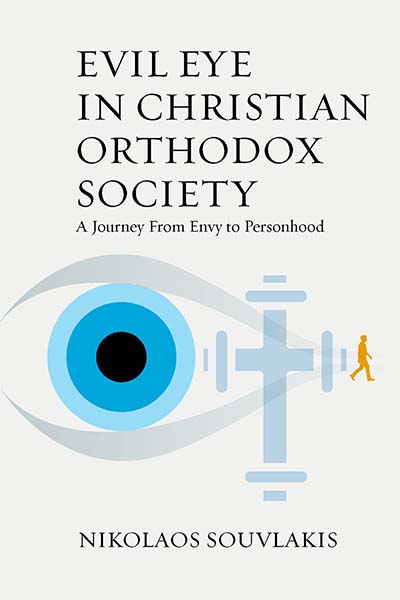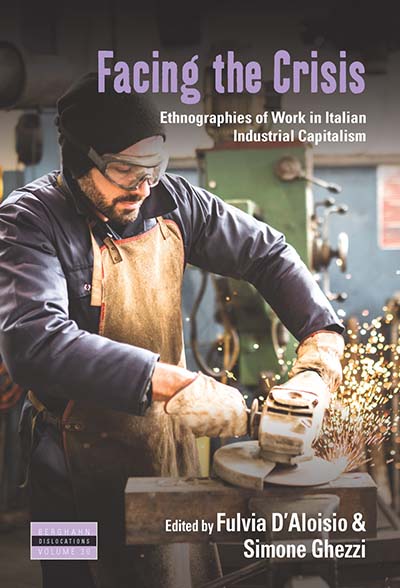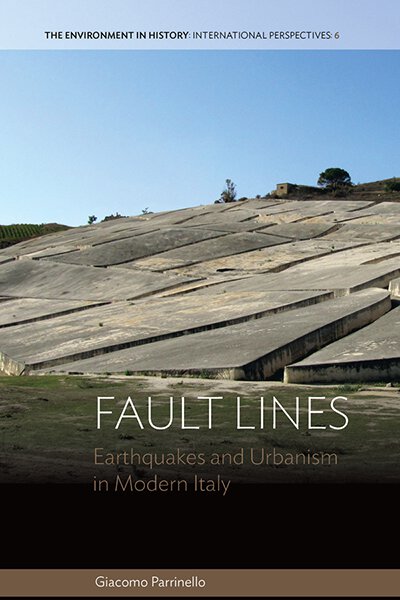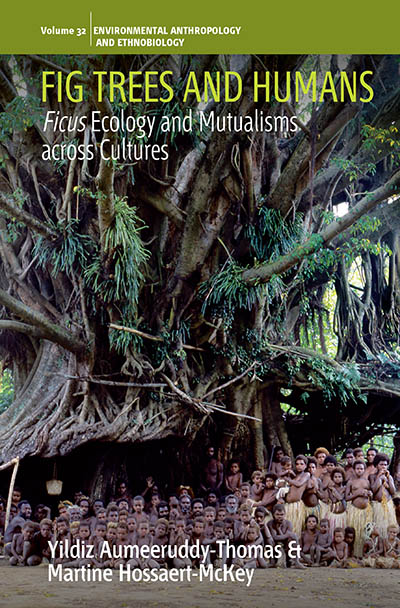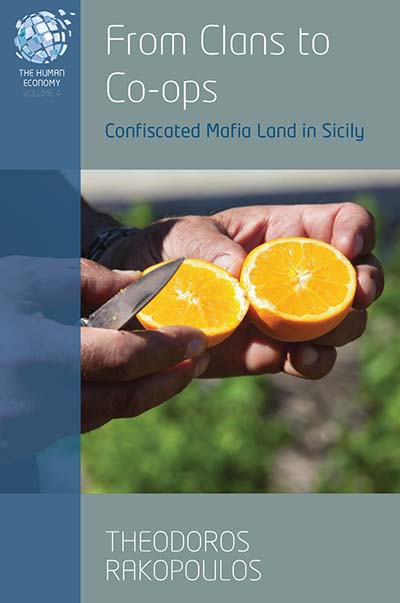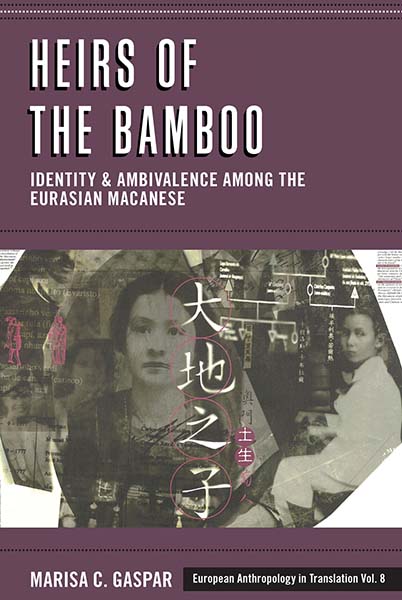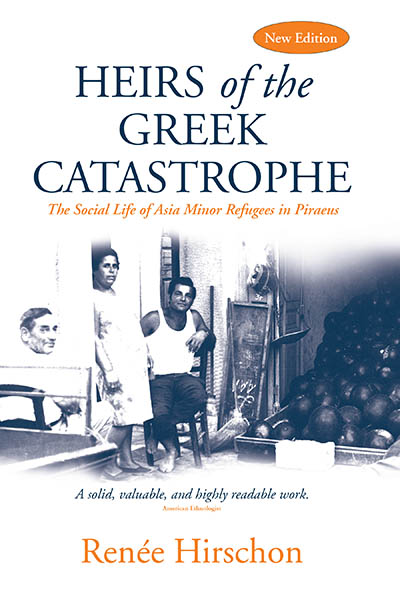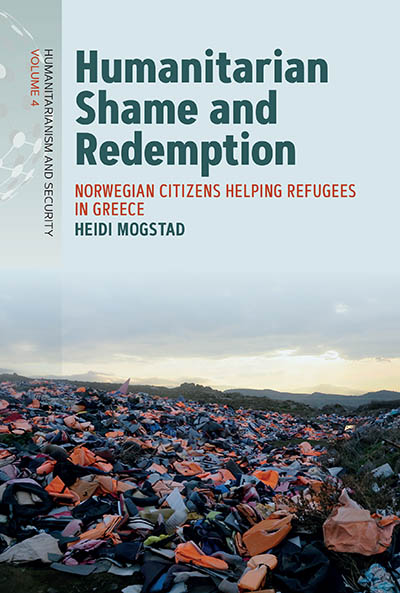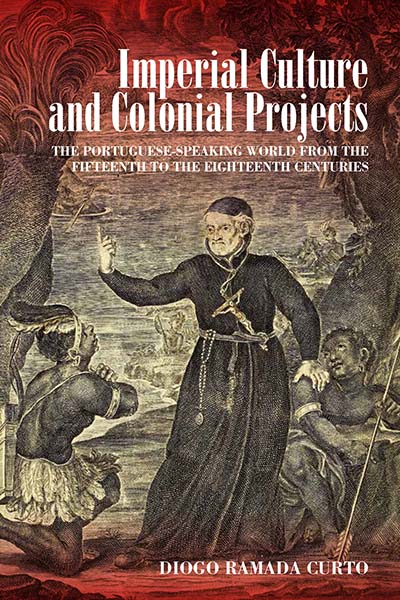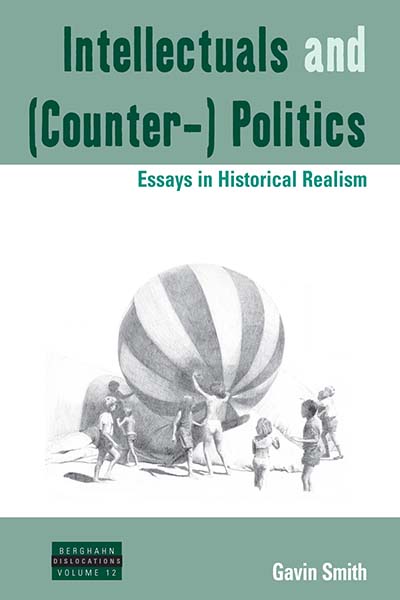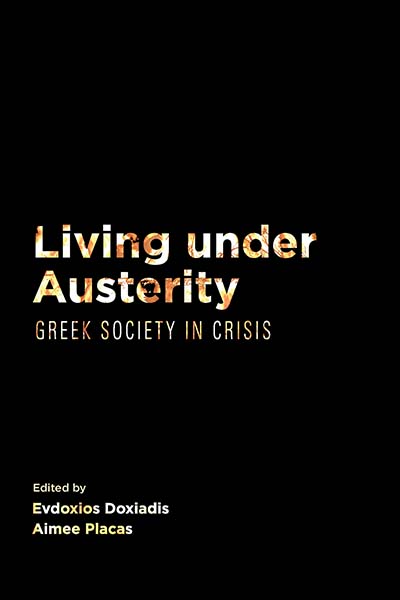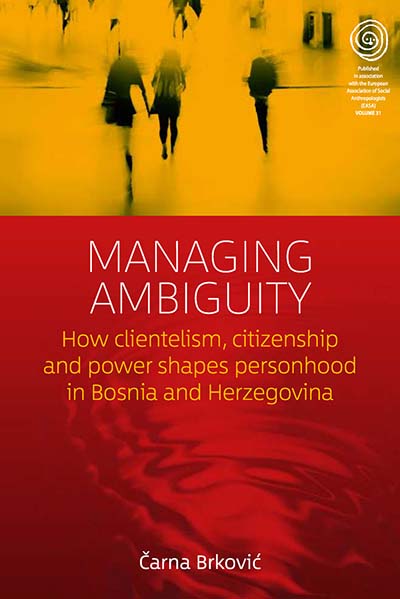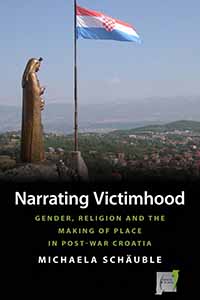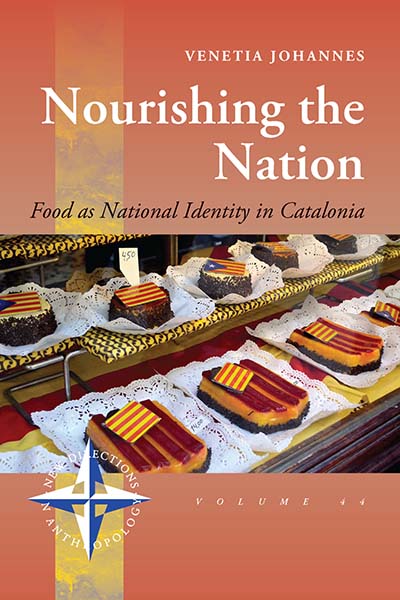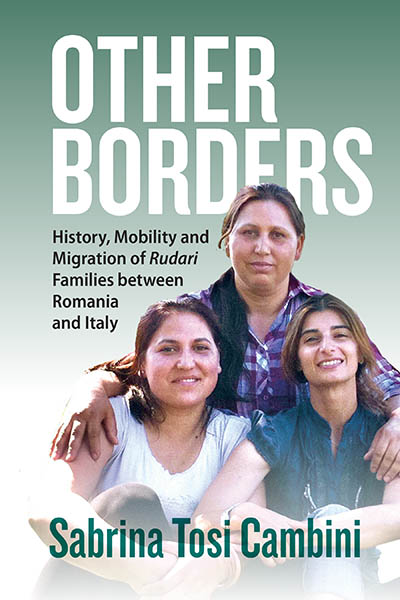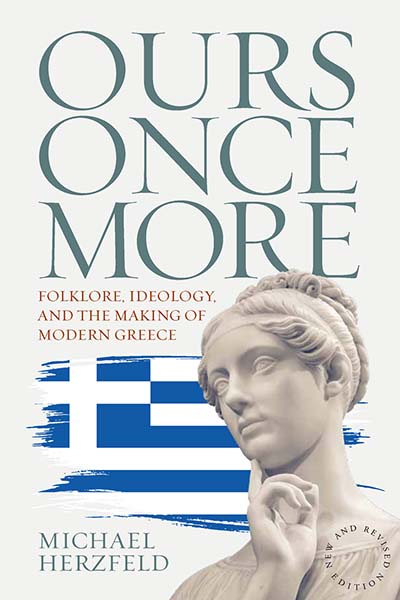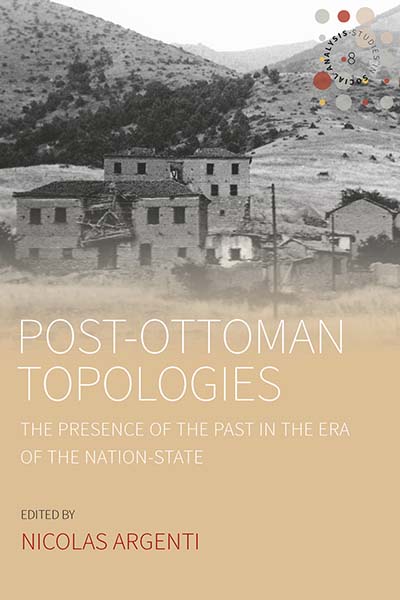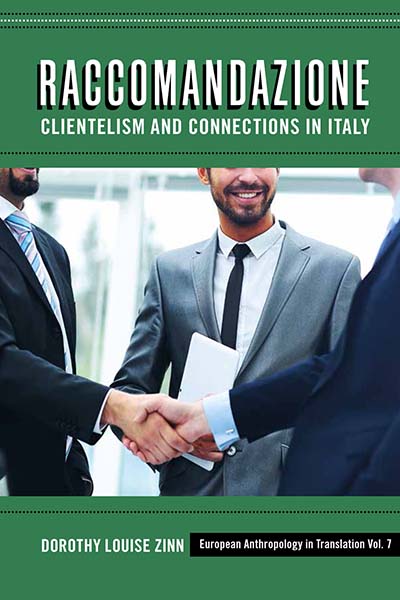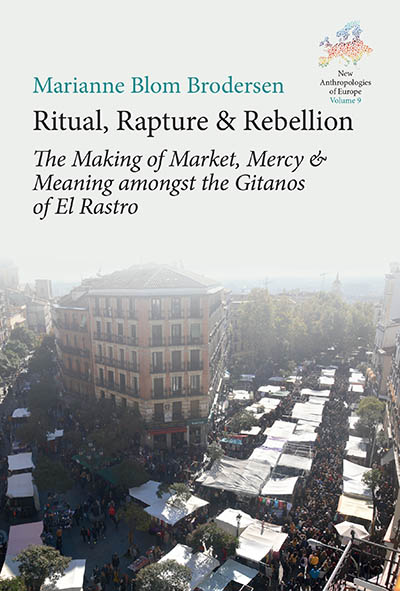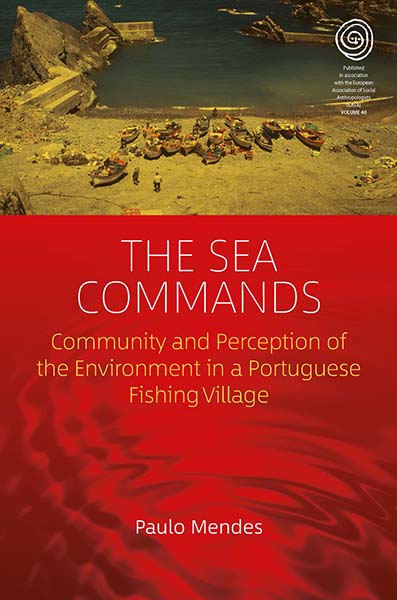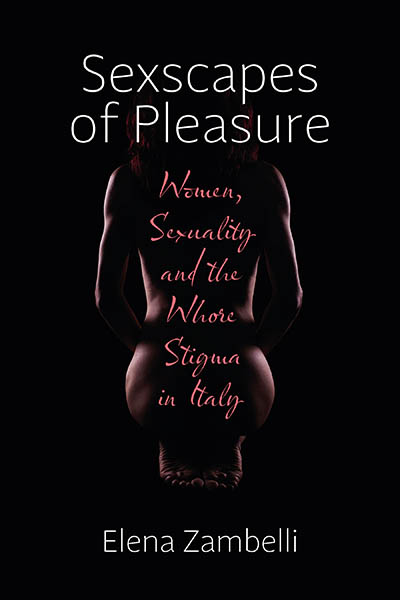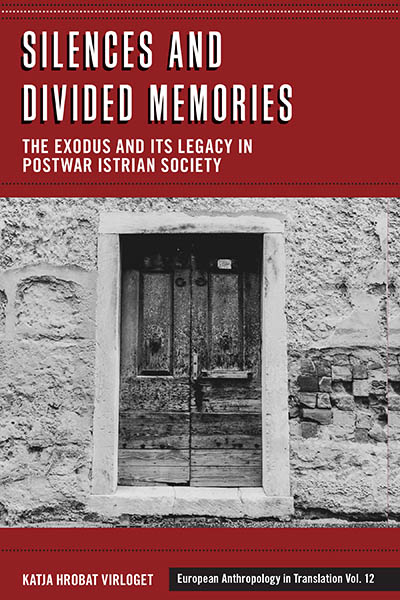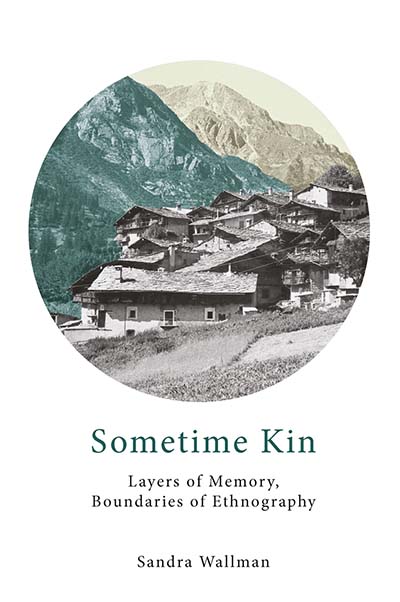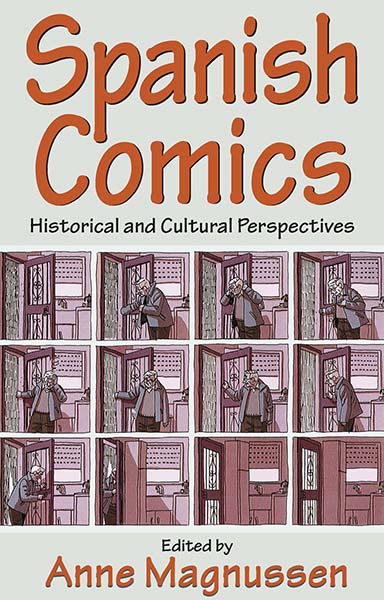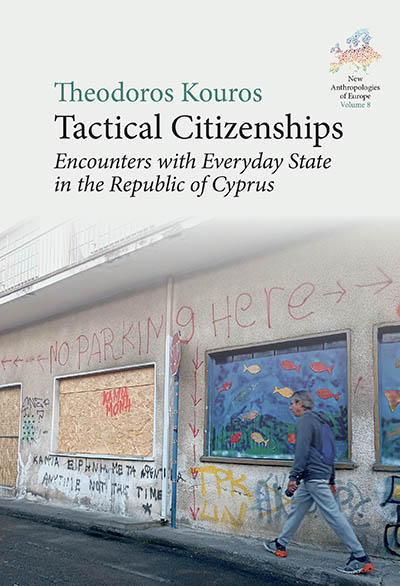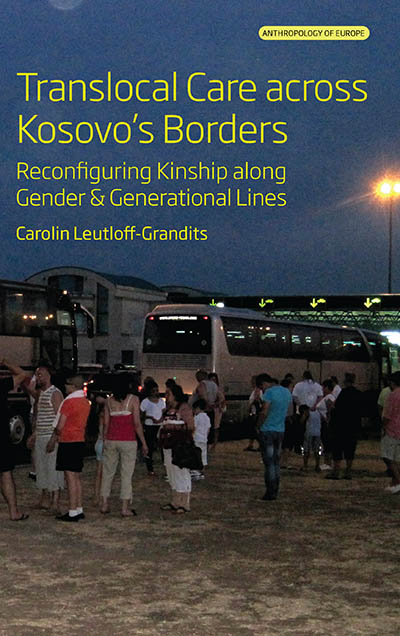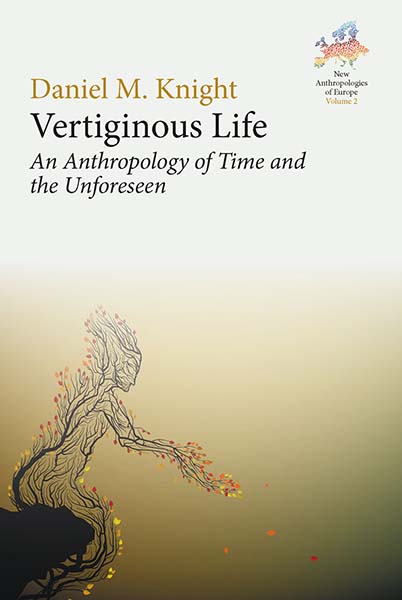Home -> Browse
-

After Difference
Queer Activism in Italy and Anthropological Theory
Heywood, P.
Queer activism and anthropology are both fundamentally concerned with the concept of difference. Yet they are so in fundamentally different ways. The Italian queer activists in this book value difference as something that must be produced, in opposition to the identity politics they find around them. Conversely, anthropologists find difference in the world around them, and seek to produce an identity between anthropological theory and the ethnographic material it elucidates. This book describes problems faced by an activist "politics of difference," and issues concerning the identity of anthropological reflection itself—connecting two conceptions of difference whilst simultaneously holding them apart.
Subjects: Theory and Methodology Anthropology (General) Gender Studies and Sexuality
Area: Southern Europe
-

All or None
Cooperation and Sustainability in Italy's Red Belt
Sánchez Hall, A.
At once a social history and anthropological study of the world’s oldest voluntary collective farms, All or None is a story of how landless laborers joined together in Ravenna, Italy to acquire land, sometimes by occupying private land in what they called a “strike in reverse,” and how they developed sophisticated land use plans, based not only on the goal of profit, but on the human value of providing work where none was available. It addresses the question of the viability of cooperative enterprise as a potential solution for displaced workers, and as a more humane alternative to capitalist agribusiness.
Subjects: Anthropology (General) Political and Economic Anthropology
Area: Southern Europe
-

Almost, but Not Quite Bored in Pula
An Anthropological Study of the Tapija Phenomenon in Northwest Croatia
Matošević, A.
Based on interviews and fieldwork conducted among residents of Pula, a coastal city in Northwestern Croatia, this study explores various aspects of a local feeling of boredom. This is mirrored in the term tapija, a word of Turkish origin describing a property deed, and in Pula’s urban slang it has morphed from its original sense describing a set of affective states into one of lameness, loneliness, unwillingness, and irony. Combining lively conversations with a significant bibliography of the topic, the result is a compelling local anthropological study of boredom in a wider historical and global context.
Subjects: Anthropology (General) Sociology
Area: Southern Europe
-

Americans in Tuscany
Charity, Compassion, and Belonging
Trundle, C.
Since the time of the Grand Tour, the Italian region of Tuscany has sustained a highly visible American and Anglo migrant community. Today American women continue to migrate there, many in order to marry Italian men. Confronted with experiences of social exclusion, unfamiliar family relations, and new cultural terrain, many women struggle to build local lives. In the first ethnographic monograph of Americans in Italy, Catherine Trundle argues that charity and philanthropy are the central means by which many American women negotiate a sense of migrant belonging in Italy. This book traces women’s daily acts of charity as they gave food to the poor, fundraised among the wealthy, monitored untrustworthy recipients, assessed the needy, and reflected on the emotional work that charity required. In exploring the often-ignored role of charitable action in migrant community formation, Trundle contributes to anthropological theories of gift giving, compassion, and reflexivity.
Subjects: Anthropology (General) Refugee and Migration Studies
Area: Southern Europe
-

Anthropology, Nationalism and Colonialism
Mendes Correia and the Porto School of Anthropology
Ferraz de Matos, P.
A major contribution to the history of European anthropology, this book highlights the Porto School of Anthropology and analyses the work of its main mentor, Mendes Correia (1888-1960). It goes beyond a Portuguese focus to present a wider comparative analysis in which the colonial empire, knowledge of origins, ethnic identity and cultural practices all receive special attention. The analysis takes into account the fact that nationalism, as associated with an ethno-racial paradigm, decisively influenced discourse and scientific and political practices.
Subjects: Anthropology (General) Colonial History Political and Economic Anthropology
Area: Southern Europe
-

Bigger Fish to Fry
A Theory of Cooking as Risk, with Greek Examples
Sutton, D. E.
What defines cooking as cooking, and why does cooking matter to the understanding of society, cultural change and everyday life? This book explores these questions by proposing a new theory of the meaning of cooking as a willingness to put oneself and one’s meals at risk on a daily basis. Richly illustrated with examples from the author’s anthropology fieldwork in Greece, Bigger Fish to Fry proposes a new approach to the meaning of cooking and how the study of cooking can reshape our understanding of social processes more generally.
Subjects: Food & Nutrition Anthropology (General) Cultural Studies (General)
Area: Southern Europe
-

Birds of Passage
Hunting and Conservation in Malta
Falzon, M.-A.
Bird migration between Europe and Africa is a fraught journey, particularly in the Mediterranean, where migratory birds are shot and trapped in large numbers. In Malta, thousands of hunters share a shrinking countryside. They also rub shoulders with a strong bird-protection and conservation lobby. Drawing on years of ethnographic fieldwork, this book traces the complex interactions between hunters, birds and the landscapes they inhabit, as well as the dynamics and politics of bird conservation. Birds of Passage looks at the practice and meaning of hunting in a specific context, and raises broader questions about human-wildlife interactions and the uncertain outcomes of conservation.
Subjects: Anthropology (General) Environmental Studies (General) Sustainable Development Goals
Area: Southern Europe
-

Blood and Oranges
Immigrant Labor and European Markets in Rural Greece
Lawrence, C. M.
A compelling account of the intersection of globalization and neo-racism in a rural Greek community, this book describes the contradictory political and economic development of the Greek countryside since its incorporation into the European Union, where increased prosperity and social liberalization have been accompanied by the creation of a vulnerable and marginalized class of immigrant laborers. The author analyzes the paradoxical resurgence of ethnic nationalism and neo-racism that has grown in the wake of European unification and addresses key issues of racism, neoliberalism and nationalism in contemporary anthropology.
Subjects: Refugee and Migration Studies Political and Economic Anthropology Anthropology (General) Sociology
Area: Southern Europe
-

The Camino de Santiago
Curating the Pilgrimage as Heritage and Tourism
Murray, M.
Pilgrimage, as a global activity linked to the sacred, speaks to the special significance of persons, places and events. This book relates these sentiments to the curatorship of the Camino de Santiago that comprises a lattice of European pilgrimage itineraries converging at Santiago de Compostela in northwest Spain. The detailed analysis focuses on the management of pilgrimage settings as heritage and tourism linked to the shrine of Saint James and gives particular attention to investment guidelines, land use planning regulations, environmental stewardship, information dissemination and museology.
Subjects: Heritage Studies Anthropology of Religion Anthropology (General)
Area: Southern Europe
-

Captives, Colonists and Craftspeople
Material Culture and Institutional Power in Malta, 1600–1900
Palmer, R.
Over the course of four centuries, the island of Malta underwent several significant political transformations, including its roles as a Catholic bastion under the Knights of St. John between 1530 and 1798, and as a British maritime hub in the nineteenth century. This innovative study draws on both archival evidence and archeological findings to compare slavery and coerced labor, resource control, globalization, and other historical phenomena in Malta under the two regimes: one feudal, the other colonial. Spanning conventional divides between the early and late modern eras, Russell Palmer offers here a rich analysis of a Mediterranean island against a background of immense European and global change.
Subjects: Colonial History Archaeology
Area: Southern Europe
-

Communities, Landscapes, and Interaction in Neolithic Greece
Sarris, A., Kalogiropoulou, E., Kalayci, T., & Karimali, E. (eds)
The last three decades have witnessed a period of growing archaeological activity in Greece that have enhanced our awareness of the diversity and variability of ancient communities. New sites offer rich datasets from many aspects of material culture that challenge traditional perceptions and suggest complex interpretations of the past. This volume provides a synthetic overview of recent developments in the study of Neolithic Greece and reconsiders the dynamics of human-environment interactions while recording the growing diversity in layers of social organization. It fills an essential lacuna in contemporary literature and enhances our understanding of the Neolithic communities in the Greek Peninsula.
Subject: Archaeology
Area: Southern Europe
-

Conceiving Kinship
Assisted Conception, Procreation and Family in Southern Europe
Bonaccorso, M. M. E.
Conceiving Kinship is an in-depth journey, the first of its kind, into how heterosexual, lesbian and gay couples using programmes of gamete donation conceptualize and make Italian kinship. It explores the provision of treatment in clinical and non-clinical settings at a time when Italy was considered the 'Wild-West' of assisted conception. This compelling study provides a new perspective on hotly debated issues in kinship studies and the modern medical technologies; it offers fresh insights into longstanding questions of cultural continuities and discontinuities in European kinship.
Subjects: Medical Anthropology Gender Studies and Sexuality
Area: Southern Europe
-

Cyprus and its Conflicts
Representations, Materialities, and Cultures
Doudaki, V. & Carpentier, N. (eds)
The Mediterranean island of Cyprus is the site of enduring political, military, and economic conflict. This interdisciplinary collection takes Cyprus as a geographical, cultural and political point of reference for understanding how conflict is mediated, represented, reconstructed, experienced, and transformed. Through methodologically diverse case studies of a wide range of topics—including public art, urban spaces, and print, broadcast and digital media—it assembles an impressively multifaceted perspective, one that provides broad insights into the complex interplay of culture, conflict, and identity.
Subjects: Media Studies Peace and Conflict Studies
Area: Southern Europe
-

European Products
Making and Unmaking Heritage in Cyprus
Welz, G.
On the Mediterranean island of Cyprus, rural villages, traditional artefacts, even atmospheres and experiences are considered heritage. Heritage making not only protects, but also produces, things, people, and places. Since the Republic of Cyprus joined the European Union in 2004, heritage making and Europeanization are increasingly intertwined in Greek-Cypriot society. Against the backdrop of a long-term ethnographic engagement, the author argues that heritage emerges as an increasingly standardized economic resource, a “European product.” Implemented in historic preservation, rural tourism, culinary traditions, nature protection, and urban restoration projects, heritage policy has become infused with transnational market regulations and neoliberal property regimes.
Subjects: Anthropology (General) Museum Studies Heritage Studies
Area: Southern Europe
-

Everyday Invisibility
The Lives of African Women in Greece
Zaphiriou-Zarifi, Viki
Greece’s economic collapse of 2008, compounded by years of austerity, soaring unemployment and increasing anti-migrant sentiment, intensified the vulnerabilities of African women in Athens. This book explores their everyday lives, showing how processes of gendered racialization render them both invisible and hyper-visible, heightening exposure to discrimination and precarity. Drawing on rich ethnographic material, it highlights the strategies they deploy to counter the disadvantages they face and secure livable lives. Resisting exclusion, liminality and marginalization, these women challenge who can and who cannot belong in contemporary Athens. The book offers a compelling account of resilience, agency and the creative ways in which people navigate conditions of economic crisis and rising xenophobia.
Subjects: Political and Economic Anthropology Gender Studies and Sexuality
Area: Southern Europe
-

Evil Eye in Christian Orthodox Society
A Journey from Envy to Personhood
Souvlakis, N.
Evil eye is a phenomenon observed globally and has to do with the misfortune and calamities that we can cause to someone else out of jealousy of their possessions. The book engages with evil eye beliefs in Corfu and investigates the Christian Orthodox influences on the phenomenon and how it affects individuals’ reactions to it. Developing an interdisciplinary dialogue, it offers a fresh view of evil eye as a facilitator of wellbeing rather than a generator of calamities.
Subjects: Anthropology of Religion Anthropology (General)
Area: Southern Europe
-

Facing the Crisis
Ethnographies of Work in Italian Industrial Capitalism
D'Aloisio, F. & Ghezzi, S. (eds)
Among the founding nations of the European Union, no nation has experienced a more devastating affect from the 2008 economic crisis than Italy. Although its recovery has recently begun, Italy has fallen even further behind EU economic leaders and the EU average. Looking at how and why this happened, Facing the Crisis brings together ethnographic material from anthropological research projects carried out in various Italian industrial locations. With its wide breadth of locations and industries, the volume looks at all corners of the diverse Italian manufacturing system.
Subjects: Anthropology (General) Political and Economic Anthropology Sociology
Area: Southern Europe
-

Fault Lines
Earthquakes and Urbanism in Modern Italy
Parrinello, G.
Earth’s fractured geology is visible in its fault lines. It is along these lines that earthquakes occur, sometimes with disastrous effects. These disturbances can significantly influence urban development, as seen in the aftermath of two earthquakes in Messina, Italy, in 1908 and in the Belice Valley, Sicily, in 1968. Following the history of these places before and after their destruction, this book explores plans and developments that preceded the disasters and the urbanism that emerged from the ruins. These stories explore fault lines between “rural” and “urban,” “backwardness” and “development,” and “before” and “after,” shedding light on the role of environmental forces in the history of human habitats.
Subjects: Environmental Studies (General) History: 20th Century to Present
Area: Southern Europe
-

Fig Trees and Humans
Ficus Ecology and Mutualisms across Cultures
Aumeeruddy-Thomas, Y.
Humans and figs form hybrid communities within the context of anthropogenic landscapes, supported by biocultural mutualisms driven by traits of Ficus species and people’s imagination and practices, and where humans also positively influence Ficus species ecology. Fig Trees and Humans examines the interactions between the biology and ecology of the genus Ficus and how humans use and think of Ficus species across the tropics and in the Mediterranean region. It demonstrates a high level of convergence of material and symbolic uses of human-fig interactions that affect various aspects of human culture, as well as the ecology of wild or cultivated Ficus species.
Subjects: Anthropology (General) Environmental Studies (General)
Area: Southern Europe
-

From Clans to Co-ops
Confiscated Mafia Land in Sicily
Rakopoulos, T.
From Clans to Co-ops explores the social, political, and economic relations that enable the constitution of cooperatives operating on land confiscated from mafiosi in Sicily, a project that the state hails as arguably the greatest symbolic victory over the mafia in Italian history. Rakopoulos’s ethnographic focus is on access to resources, divisions of labor, ideologies of community and food, and the material changes that cooperatives bring to people’s lives in terms of kinship, work and land management. The book contributes to broader debates about cooperativism, how labor might be salvaged from market fundamentalism, and to emergent discourses about the ‘human’ economy.
Subjects: Anthropology (General) Political and Economic Anthropology Food & Nutrition
Area: Southern Europe
-

Heirs of the Bamboo
Identity and Ambivalence among the Eurasian Macanese
Gaspar, M. C.
In 1999 Macao, previously a territory under Portuguese rule, was handed over to the People’s Republic of China and transformed into one of the gambling capitals of the world. These political and economic phenomena were accompanied by unprecedented social changes that, ultimately, have redefined the Macanese identity. This book is about the Macanese living in Portugal and their intimate social networks in loco and interactions with their counterparts in Macao and elsewhere in the diaspora, by the use of Internet. Memory and ambivalence, deeply associated with kinship, language, food and heritage, are the cornerstones of this research, which overturns colonial stereotypes and concepts of Macanese cultural purity.
Subjects: Anthropology (General) Refugee and Migration Studies
Area: Southern Europe
-

Heirs of the Greek Catastrophe
The Social Life of Asia Minor Refugees in Piraeus
Hirschon, R.
Heirs of the Greek Catastrophe is a landmark work in the areas of anthropology and migration studies. Since its first publication in 1989, this classic study has remained in demand. The third edition is published to mark the centenary of the 1923 Lausanne Convention which led to the movement of some 1.5 million persons between Greece and Turkey at the conclusion of their war. It includes updated material with a new Preface, Afterword by Ayhan Aktar, and map of the wider region. The new Preface provides the context in which the original research took place, assesses its innovative aspects and explores the dimensions of history and identity which are predominant themes in the book.
Subjects: Anthropology (General) Refugee and Migration Studies History: 20th Century to Present
Area: Southern Europe
-

The Heritage Arena
Reinventing Cheese in the Italian Alps
Grasseni, C.
In Europe a number of production and communication strategies have long tried to establish local products as resources for local development. At the foot of the Alps, this scenario appears in all its contradictions, especially in relation to cheese production. The Heritage Arena focuses on the saga of Strachitunt, a cheese that has been designated an EU Protected Designation of Origin after years of negotiation and competition involving cheese-makers, merchants, and Slow Food activists. The book explores how the reinvention of cheese as a form of heritage is an ongoing and dynamic process rife with conflict and drama.
Subjects: Anthropology (General) Food & Nutrition
Area: Southern Europe
-

Humanitarian Shame and Redemption
Norwegian Citizens Helping Refugees in Greece
Mogstad, H.
Following the 2015 ‘refugee crisis,’ many different actors emerged to contest or mitigate the EU’s border policies. This book explores the birth and trajectory of a Norwegian volunteer organisation “A Drop in the Ocean”, established by a mother of five with no prior experience in humanitarian work. Drawing on eighteen months of ethnographic fieldwork, Heidi Mogstad examines the organisation’s shifting and contested efforts to ‘fill humanitarian gaps’ in Greece while witnessing and shaming the Norwegian public and politicians into action. Moving beyond existing critiques of humanitarian sentiments like pity and compassion, the book focuses specifically on the work of shame and other ‘negative’ emotions.
Subjects: Anthropology (General) Refugee and Migration Studies Sociology
Area: Southern Europe
-

Imperial Culture and Colonial Projects
The Portuguese-Speaking World from the Fifteenth to the Eighteenth Centuries
Curto, D. R.
Beyond the immeasurable political and economic changes it brought, colonial expansion exerted a powerful effect on Portuguese culture. And as this book demonstrates, the imperial culture that emerged over the course of four centuries was hardly a homogeneous whole, as triumphalist literature and other cultural forms mingled with recurrent doubts about the expansionist project. In a series of illuminating case studies, Ramada Curto follows the history and perception of major colonial initiatives while integrating the complex perspectives of participating agents to show how the empire’s life and culture were richly inflected by the operations of imperial expansion.
Subjects: History: Medieval/Early Modern Colonial History
Area: Southern Europe
-

Intellectuals and (Counter-) Politics
Essays in Historical Realism
Smith, G.
Contemporary forms of capitalism and the state require close analytic attention to reveal the conditions of possibility for effective counter-politics. On the other hand the practice of collective politics needs to be studied through historical ethnography if we are to understand what might make people’s actions effective. This book suggests a research agenda designed to maximize the political leverage of ordinary people faced with ever more remote states and technologies that make capitalism increasingly rapacious. Gavin Smith opens and closes this series of interlinked essays by proposing a concise framework for untangling what he calls “the society of capital” and subsequently a potentially controversial way of seeing its contemporary features. This book tackles the political conundrums of our times and asks what roles intellectuals might play therein.
Subjects: Anthropology (General) Political and Economic Anthropology
Areas: Latin America and the Caribbean Southern Europe
-

Living Under Austerity
Greek Society in Crisis
Doxiadis, E. & Placas, A. (eds)
Since its sovereign debt crisis in 2009, Greece has been living under austerity, with no apparent end in sight. This volume explores the effects of policies pursued by the Greek state since then (under the direction of the Troika), and how Greek society has responded. In addition to charting the actual effects of the Greek crisis on politics, health care, education, media, and other areas, the book both examines and challenges the “crisis” era as the context for changing attitudes and developments within Greek society.
Subjects: Anthropology (General) Sociology Political and Economic Anthropology
Area: Southern Europe
-

Lurking Cold War
Life Through Historical Communion
Pipyrou, S.
Lasting traces of the Cold War continue to shape the social landscape in Italy and Greece. Lurking Cold War critiques the connections between global categories and individual experiences, foregrounding Cold War resonances through materiality, imagination, speculation, and affect – in literature, bureaucracy, and the family. Introducing a theory of methexi, it explores how people and history are brought into communion, blurring the boundaries between the known and unknown, reality and imagination, form and interpretation. The result is an articulation of history that not only reveals the ongoing presence of the Cold War but shows how and why it still matters today.
Subjects: Political and Economic Anthropology Peace and Conflict Studies History: 20th Century to Present
Area: Southern Europe
-

Managing Ambiguity
How Clientelism, Citizenship, and Power Shape Personhood in Bosnia and Herzegovina
Brković, Č.
Why do people turn to personal connections to get things done? Exploring the role of favors in social welfare systems in postwar, postsocialist Bosnia and Herzegovina, this volume provides a new theoretical angle on links between ambiguity and power. It demonstrates that favors were not an instrumental tactic of survival, nor a way to reproduce oneself as a moral person. Instead, favors enabled the insertion of personal compassion into the heart of the organization of welfare.
Managing Ambiguity follows how neoliberal insistence on local community, flexibility, and self-responsibility was translated into clientelist modes of relating and back, and how this fostered a specific mode of power.
Subjects: Anthropology (General) Peace and Conflict Studies History: 20th Century to Present
Area: Southern Europe
-

Narrating Victimhood
Gender, Religion and the Making of Place in Post-War Croatia
Schäuble, M.
Mythologies and narratives of victimization pervade contemporary Croatia, set against the backdrop of militarized notions of masculinity and the political mobilization of religion and nationhood. Based on extensive ethnographic fieldwork in rural Dalmatia in the Croatian-Bosnian border region, this book provides a unique account of the politics of ambiguous Europeanness from the perspective of those living at Europe’s margins. Examining phenomena such as Marian apparitions, a historic knights tournament, the symbolic re-signification of a massacre site, and the desolate social situation of Croatian war veterans, Narrating Victimhood traces the complex mechanisms of political radicalization in a post-war scenario. This book provides a new perspective for understanding the ongoing processes of transformation in Southeastern Europe and the Balkans.
Subjects: Anthropology (General) Gender Studies and Sexuality
Area: Southern Europe
-

Nourishing the Nation
Food as National Identity in Catalonia
Johannes, V.
In the early twenty-first century, nationalism has seen a surprising resurgence across the Western world. In the Catalan Autonomous Community in northeastern Spain, this resurgence has been most apparent in widespread support for Catalonia’s pro-independence movement, and the popular assertion of Catalan symbols, culture and identity in everyday life. Nourishing the Nation provides an ethnographic account of the everyday experience of national identity in Catalonia, using an essential, everyday object of consumption: food. As a crucial element of Catalan cultural life, a focus on food provides unique insight into the lived realities of Catalan nationalism, and how Catalans experience and express their national identity today.
Subjects: Food & Nutrition Anthropology (General)
Area: Southern Europe
-

Other Borders
History, Mobility and Migration of Rudari Families between Romania and Italy
Tosi Cambini, S.
Rudari Lingurari families, one of many significant minority groups in Southeastern Europe, have been characterized by mobility since the end of the nineteenth century, from voluntary border crossings to deportations and forced relocations. Other Borders draws from participatory, multi-site ethnographic research to explore rudari families' cultural and relational frames of mobility through their social and economic organization. Sabrina Tosi Cambini develops the concept of 'moving gaze' to more effectively explore rudari migration paths across multiple countries, their occupation of unoccupied buildings in Italy, their housing practices in both Italy and Romania, and the movement of their objects, ideas and imaginaries.
Subjects: Refugee and Migration Studies Cultural Studies (General) Theory and Methodology
Areas: Southern Europe Central/Eastern Europe
-

Ours Once More
Folklore, Ideology, and the Making of Modern Greece
Herzfeld, M.
When this work – one that contributes to both the history and anthropology fields – first appeared in 1982, it was hailed as a landmark study of the role of folklore in nation-building. It has since been highly influential in reshaping the analysis of Greek and European cultural dynamics. In this expanded edition, a new introduction by the author and an epilogue by Sharon Macdonald document its importance for the emergence of serious anthropological interest in European culture and society and for current debates about Greece’s often contested place in the complex politics of the European Union.
Subjects: Anthropology (General) History (General)
Area: Southern Europe
-

Post-Ottoman Topologies
The Presence of the Past in the Era of the Nation-State
Argenti, N. (ed)
How are historians and social scientists to understand the emergence, the multiplicity, and the mutability of collective memories of the Ottoman Empire in the political formations that succeeded it? With contributions focussing on several of the nation-states whose peoples once were united under the aegis of Ottoman suzerainty, this volume proposes new theoretical approaches to the experience and transmission of the past through time. Developing the concept of topology, contributors explore collective memories of Ottoman identity and post-Ottoman state formation in a contemporary epoch that, echoing late modernity, we might term “late nationalism”.
Subjects: Sociology Anthropology (General) Memory Studies
Areas: Southern Europe Middle East & Israel
-

Raccomandazione
Clientelism and Connections in Italy
Zinn, D. L.
The issue of patronage-clientelism has long been of interest in the social sciences. Based on long-term ethnographic research in southern Italy, this book examines the concept and practice of raccomandazione: the omnipresent social institution of using connections to get things done. Viewing the practice both from an indigenous perspective – as a morally ambivalent social fact – and considering it in light of the power relations that position southern Italy within the nesting relations of global Norths and Souths, it builds on and extends past scholarship to consider the nature of patronage in a contemporary society and its relationship to corruption.
Subjects: Anthropology (General) Cultural Studies (General) Applied Anthropology
Area: Southern Europe
-

Rethinking a Radical Reputation
An Athens Neighbourhood between Media Hype and Social Experience
Kenti-Kranidioti, M.
Known for its anarchist and leftist movements, its uprisings and its vibrant counterculture, Exarcheia has long been a symbol of resistance and political activism in Greece. Through the voices and experiences of those who live, work and move through Exarcheia, this book delves into Athens’ most contested neighbourhood – both its visible, striking elements and the unseen, elusive forces that linger in whispers, silences and memories. It unravels the tensions and contradictions of a place where beauty and resistance, decay and resilience are coexistent. Rather than reinforcing or dismissing its clichés and stereotypes, this exploration reveals the layered histories and political narratives that shape Exarcheia’s past, present and future.
Subjects: Anthropology (General) Sociology Urban Studies
Area: Southern Europe
-

Ritual, Rapture and Rebellion
The Making of Market, Mercy and Meaning Amongst the Gitanos of El Rastro
Brodersen, M. B.
The Gitanos of el Rastro carry an ‘ontology of simultaneity’ as self-employed traders and Pentecostal practitioners in Madrid. This makes the Spanish Romani be considered as both a part of and apart from mainstream society. This book is an anthropological account of a group of middle and upper-class Gitanos and their ways of creating a ‘society within society’ based upon distinct cultural, moral and ideological values, notions and practices. The study renders a comprehensive perspective on social processes of classification, stratification, ‘othering’ and the role of ‘strangers’ in society and how these processes unfold in the interface between social, ritual and economic life on a local to global scale.
Subjects: Political and Economic Anthropology Sociology
Area: Southern Europe
-

The Sea Commands
Community and Perception of the Environment in a Portuguese Fishing Village
Mendes, P.
Azenha do Mar is a fishing community on the southwest coast of Portugal. It came into existence around forty years ago, as an outcome of the abandonment of work in the fields and of propitious ecological conditions. This book looks at the migration processes since the founding of the community and how they relate to the social inequalities for property and labour which prevail today. The book also reflects upon the personal experience of the ethnographer in the field balancing the importance of methodology on the one hand and fieldwork as a research process on the other.
Subjects: Anthropology (General) Environmental Studies (General)
Area: Southern Europe
-

Sexscapes of Pleasure
Women, Sexuality and the Whore Stigma in Italy
Zambelli, E.
Focusing on Italy, this book discusses how women negotiate sexuality and social status in a Western sexscape constituted by multifaceted articulations of women’s sexuality, commodities and modernity. Drawing from ethnographic research, this book brings together the narratives of Italian and migrant women pole dancing for leisure, women pole and lap dancing for work, as well as women selling sex. By tracing commonalities in women’s processes of subjectivation and othering across the non/sex working women divide, the book foregrounds the intersecting structures of oppression under which women negotiate selfhood.
Subjects: Sociology Gender Studies and Sexuality Anthropology (General)
Area: Southern Europe
-

Silences and Divided Memories
The Exodus and its Legacy in Post-War Istrian Society
Virloget, K. H.
The Istrian Peninsula, which is made up of modern-day Croatia, Slovenia, and Italy suffered from the so-called "Istrian exodus" after the Second World War. This book looks at this difficult, silenced past and shifts the usual focus from migrants to those who stayed behind and to the new immigrants who came to the “emptied” towns.The research, based on individual memories, deals with silences and competing national discourses, reasons to stay and leave, hybrid border ethnic identities, and the renewal of Istrian society and its new social relations. It is a self-critical reflection on an ignored chapter of national history, which, with an empathetic approach, allows the silence to speak.
Subjects: Anthropology (General) Refugee and Migration Studies Memory Studies
Areas: Southern Europe Central/Eastern Europe
-

Sometime Kin
Layers of Memory, Boundaries of Ethnography
Wallman, S.
In Sometime Kin, Sandra Wallman paints the portrait of an Alpine settlement – its history, economy and culture, and its unusual resistance to outsiders and modernization. Against this, her journal shows the villagers embracing her four small children and acting as participant observers in the two-way process of research. This project happened more than forty years ago and involved a uniquely large fieldwork family, but its insights have wider significance. The book argues that the intrusion of observation inevitably distorts the ordinary life observed, that the challenges of multi-vocality and “truth” are always with us, and that memory is the bedrock of every ethnographic enterprise.
Subjects: Theory and Methodology Sociology
Area: Southern Europe
-

Spanish Comics
Historical and Cultural Perspectives
Magnussen, A. (ed)
Spanish comics represent an exciting and diverse field, yet one that is often overlooked outside of Spain. Spanish Comics offers an overview on contemporary scholarship on Spanish comics, focusing on a wide range of comics dating from the Francoist dictatorship, 1939-1975; the Political Transition, 1970-1985; and Democratic Spain since the early 1980s including the emergence of the graphic novel in 2000. Touching on themes of memory, gender, regional identities, and history, the chapters in this collection demonstrate the historical and cultural significance of Spanish comics.
Subjects: Cultural Studies (General) Media Studies
Area: Southern Europe
-

The Spectral Within
Fascism, New Towns and their Contemporary Lives
Miltiadis, E.
Latina was founded in 1932 by the Fascist Regime and is often described by its inhabitants through its absences, as a place where there is ‘nothing’. The book examines the role of absence in place-making and delves into the lived experience of Latina. Through the analytical lens of haunting, this work explores its inhabitants’ efforts to see their city as a meaningful social space, as they navigate its multiple histories and the absent presence of the contested past.
Subjects: Anthropology (General) Urban Studies History: 20th Century to Present
Area: Southern Europe
-

Tactical Citizenships
Encounters with Everyday State in the Republic of Cyprus
Kouros, T.
The idea of citizenship is formed through a dynamic and flexible set of relationships that go beyond a sequence of formal rights and duties. It is recurring in everyday social contexts—in practices that play out in the real world, in the everyday exercises or refusals of citizenship rights, in the purposeful defiance of norms, and in the tactical evasion of duties. This book explores the troubled relationship between a state and its citizens across four different kinds of social spaces in Limassol, Cyprus. Tactical Citizenships is a testament to the tenacity and resourcefulness of citizens of unfair states in directing their relations with the government.
Subject: Political and Economic Anthropology
Area: Southern Europe
-

Translocal Care across Kosovo’s Borders
Reconfiguring Kinship along Gender and Generational Lines
Leutloff-Grandits, C.
In today’s globalized world, where the foundations of home and social security are destabilized due to wars and neoliberal transformations, the villagers of Kosovo are linked with a common locality despite living across borders. By tracing long-distant family relations with a special focus on cross-border marriages, this study looks at the reconfiguration of care relations, gender and generational roles among kin-members of Kosovo, who now live in different European states.
Subjects: Anthropology (General) Refugee and Migration Studies Gender Studies and Sexuality
Area: Southern Europe
-

Vertiginous Life
An Anthropology of Time and the Unforeseen
Knight, D. M.
Vertiginous Life provides a theory of the intense temporal disorientation brought about by life in crisis. In the whirlpool of unforeseen social change, people experience confusion as to where and when they belong on timelines of previously unquestioned pasts and futures. Through individual stories from crisis Greece, this book explores the everyday affects of vertigo: nausea, dizziness, breathlessness, the sense of falling, and unknowingness of Self. Being lost in time, caught in the spin-cycle of crisis, people reflect on belonging to modern Europe, neoliberal promises of accumulation, defeated futures, and the existential dilemmas of life held captive in the uncanny elsewhen.
Subjects: Anthropology (General) Sociology
Area: Southern Europe
-

Where Saints Show Respect
Mafia, Modernity, and Rituals of Power
Palumbo, B.
Where Saints Show Respect reveals the penetration of mafia values in Sicilian society. Instead of focusing on sensational criminality, this study considers rituals through which local society learns deep respect – sometimes fearful, but often playful or pious – for those values and their enforcers. State and Church misconstrue these values as vestiges of a society morally damned and left behind in a pagan past. This study draws on three decades of ethnographic research to explore a strikingly different Sicily from the self-congratulatory version of government and religious leaders, where a seemingly obscure set of rural practices offers a critical perspective on modernity itself.
Subjects: Political and Economic Anthropology Sociology Anthropology of Religion
Area: Southern Europe


